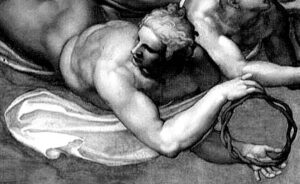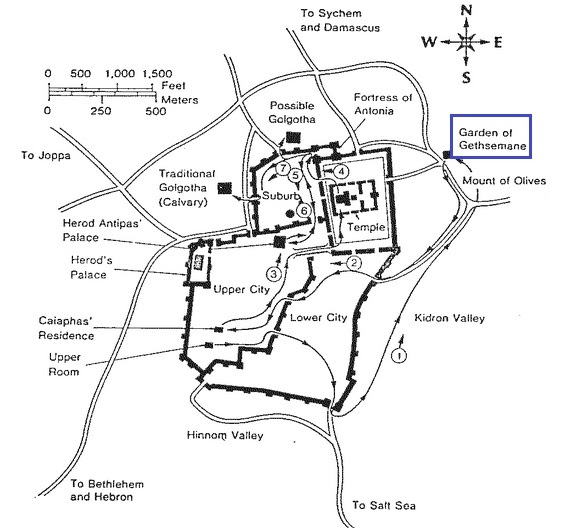Signs Of Jonah
These signs are given to all generations.

At a surface reading for millennia, Jesus’ implication was that the only sign would be “three days and nights”. But that is not what it says; He said “No sign shall be given to it, but the sign of the prophet Jonas”, then went on to give an example. Nevertheless, it was true for that generation, it was all they saw; but for the Holy Spirit’s beautiful timing, He has unlocked and revealed all this day.
Jesus spoke these words unto the denominationalists of the day. He rightly scolded that evil generation and said, as Jonah was on the belly for three days so shall I be in the earth. There was almost a disdain for teaching them or elaborating on any details, in light of their hypocritical hard hearts. They were not worthy of more and deserved such a staggering understatement.
There is so much more than ‘three days and nights’, there are well over 20 signs as we shall see. However, Jesus correctly chose not to tell them more about His detailed plan to bruise the enemy’s head. In fact: Jesus’ whole ministry, passion, death, resurrection, and return, are given in the Book of Jonah for all to see. Unlike Jonah; Jesus was never disobedient to Father, yet He had many opportunities to pass on that cup, even until His very last breath.
We will see that Jonah is a most brilliant Christ figure.
Jonah was instructed to go cry unto the city Nineveh, that great city, for their wickedness has come up before me. This would ultimately be Jerusalem and the surrounding areas. For Jesus cried as a prophet unto it, and physically over it, and also called its inhabitants evil.
While Jonah was in the boat, the sea was turned into a mighty tempest, so that the ship was to be broken. All three gospels also record a great and mighty tempest upon the sea, and the waves beat into Jesus’ boat so that it was now full.
The mariners traveling with Jonah were afraid and yelled “We parish”. Almost like a reenactment, the apostles echoed the same “We perish” in all three accounts.
We find our prophet Jonah fast asleep amidst the tempestuous storm. Miraculously we find our Jesus fast asleep on a pillow, with waves entering the boat.
On Jonah’s boat, the shipmaster came to him, and said unto him, What meanest thou, O sleeper? arise. Then again on Jesus’ boat; probably the owner of the boat as well (perhaps Peter) said, “Master, carest thou not that we perish?” and woke Jesus up.
Jonah said unto them, I am a Hebrew; and I fear the Lord, the God of heaven, which hath made the sea and the dry land. In similitude so was our Lord Jesus.
From verses 11 to 16 in Jonah, we see a parallel and a foreshadow playing out. The men asked Jonah how they may calm the sea, his response was to toss him over into the sea (people) to calm the great tempest. In the future; that very thing transpired, Jesus was cast into the people to satisfy their great anger at Jesus’ trial. The men rowed harder to counter this request. This is not unlike Peter who said to Jesus “Be it far from thee, Lord: this shall not be unto thee.” and Jesus straightway rebuked him and said, “get thee behind me satan”. The men on Jonah’s boat even pleaded that no innocent blood be upon them; an allusion to Pontius Pilate washing his hands of innocent blood.
Both Jonah and Jesus calmed the tempestuous storm, and both groups of men are amazed and sought God all the more fervently. “And they feared exceedingly, and said one to another, What manner of man is this, that even the wind and the sea obey him?”
Thus the chapter concludes with God preparing a great fish for a three-day and night travail, which is what Jesus drew as a parallel or foreshadowing to his own death and burial.
Jonah then prayed from the belly of the beast, unto the Lord and then cried for his affliction. Our loved Jesus prayed to the Lord and cried as it were great drops of blood for the affliction that was at hand.
Jonah begins his lamentation; ‘for thou hadst cast me into the deep in the midst of the sea, the floods compassed about me, and I am cast out of your sight; yet will I look towards the temple.’ This is word for word what the messianic Psalm 18 proclaimed of our suffering Lord. “The sorrows of death compassed me, and the floods of ungodly men made me afraid. The sorrows of hell compassed me about: the snares of death prevented me. In my distress I called upon the Lord, and cried unto my God: he heard my voice out of his temple, and my cry came before him, even into his ears.” Jesus most certainly could “look towards the temple” from atop Golgotha. Jesus was also cast out of the Father’s sight as written in Matthew and Psalm 22, “My God, my God, why hast thou forsaken me?” In like manner, God also heard Jesus’ voice from His temple ripped open the veil, and stepped over it.
A most breathtaking prophetic parallel happens in verse five. Jonah says, “The weeds are wrapped about my head.” How truly amazing that our King Jesus; also had weeds wrapped around his head, a bloody crown of thorns. Glory and honor to the righteous and obedient Lamb.
Jonah says that he went down to the bottom of mountains; the earth with her bars about me. Jesus also went down first into the lower parts of the earth, leading those held in bars of captivity as captive.
Jonah continues, ‘yet thou brought me up from corruption and as his soul fainted, he remembered the Lord.’ As it was for our Jesus; who at His last breath remembered Father, as He gave up the Ghost, yet, no corruption did He see.
Out of the ocean’s blue, rings forth a proclamation amidst Jonah’s talk of death. Jonah says, “They that observe lying vanities forsake their own mercy.” The pride that goes before a fall; is far worse when built on a lie, as seen in the house of His friends. This is the pride by those who follow self will, or will lay innocent blood upon their children. Those who waste such a great salvation; indeed forsake their own mercy that was, and is still at hand.
Jonah says, “I will sacrifice unto thee with thanksgiving, and I will pay that I have vowed. Salvation is of the Lord.” Glory be to Jesus, He too had given the sacrifice and fulfilled the vow He had promised to all; that He would die and be the sacrifice, shed for the living waters of salvation, to give to each so they would never thirst again, and to be embraced with the still outstretched arms of the LORD. He has paid the ransom and vowed the path, thus fulfilling all things.
The chapter concludes with the fish releasing our living Jonah, upon dry land. With no uncertainty Jesus was released from His tomb as prophesied, of three days and nights. Not to Heaven, but again onto dry land. Of which He appeared unto many for some 40 days.
The Word of the Lord came unto Jonah a “second time” go into that city. The ‘Word’ of the Lord, will return a second time unto our city.
Jonah ‘arose’ the city was 3 day journey. This is a dual prophecy; 3 days in the tomb, then He ‘arose’ and returned to Jerusalem, and also a prophetic 3 day long journey, until He returns to our city again.
Jonah entered the city and cried “Yet 40 days and Nineveh shall be overthrown. The dual prophecy continues. Jesus also returned to Jerusalem for 40 days, after His resurrection with instruction. As God granted Nineveh a time for repentance, He has also granted us time before final destruction. When Jesus returns, Jonah’s prophecy will finally be fulfilled to the letter; our city shall surely be overthrown.
The repentant believers put on sackcloth and sat in ashes, from the greatest to the least of them, and cried mightily unto God. A decree went out that neither man nor beast shall eat or drink. So shall it be at His return ‘All cast dust on their heads weeping, Alas, alas that great city in one hour was made desolate.’ famine and drought shall again be upon man and beast.
Who can tell if God will turn and repent, and turn away from His fierce anger, that we perish or not. Yet the Lord God shall make a short work of it, yet God will leave a meat and drink offering; and will finish the work to the uttermost. Yet to those who ultimately do repent, He will in no wise forsake to suffer eternal desolation.
Jonah went out of the city, sat on the East Side, and prayed to God to ‘take my life from me; for it is better for me to die than to live.’ Our glorious Jesus also went out of the city (of Jerusalem) on the East Side, into the Garden of Gethsemane, and prayed the same to God. He knew death must happen as prophesied in scripture and as foretold to His disciples. That fateful night, this same sentiment was reflected upon and prayed unto Father by Jesus. “Nevertheless not as I will, but as thou wilt.” Prophetically Jesus will yet also come from that same direction into our city, Glory to God.
All three gospels recount the sign of Jonah. “Then certain of the scribes and of the Pharisees answered, saying, Master, we would see a sign from thee. But he answered and said unto them, An evil and adulterous generation seeketh after a sign; and there shall no sign be given to it, but the sign of the prophet Jonas: For as Jonas was three days and three nights in the whale’s belly; so shall the Son of man be three days and three nights in the heart of the earth.”

Dear angels of Father, we can easily see why Jesus did not bother wasting His breath on the scribes and Pharisees. Nevertheless, there is far more than meets a surface reading of Jonah or Jesus’ off-the-cuff clue.
When one reads Jonah with this revelation; it not only deepens one’s faith but actually overwhelms the senses on how prophetic the ‘Book of Jonah’ is. As well as how perfectly Jesus fulfilled it to the: chapter, verse, and letter.
To God be the glory, honor, and praise!